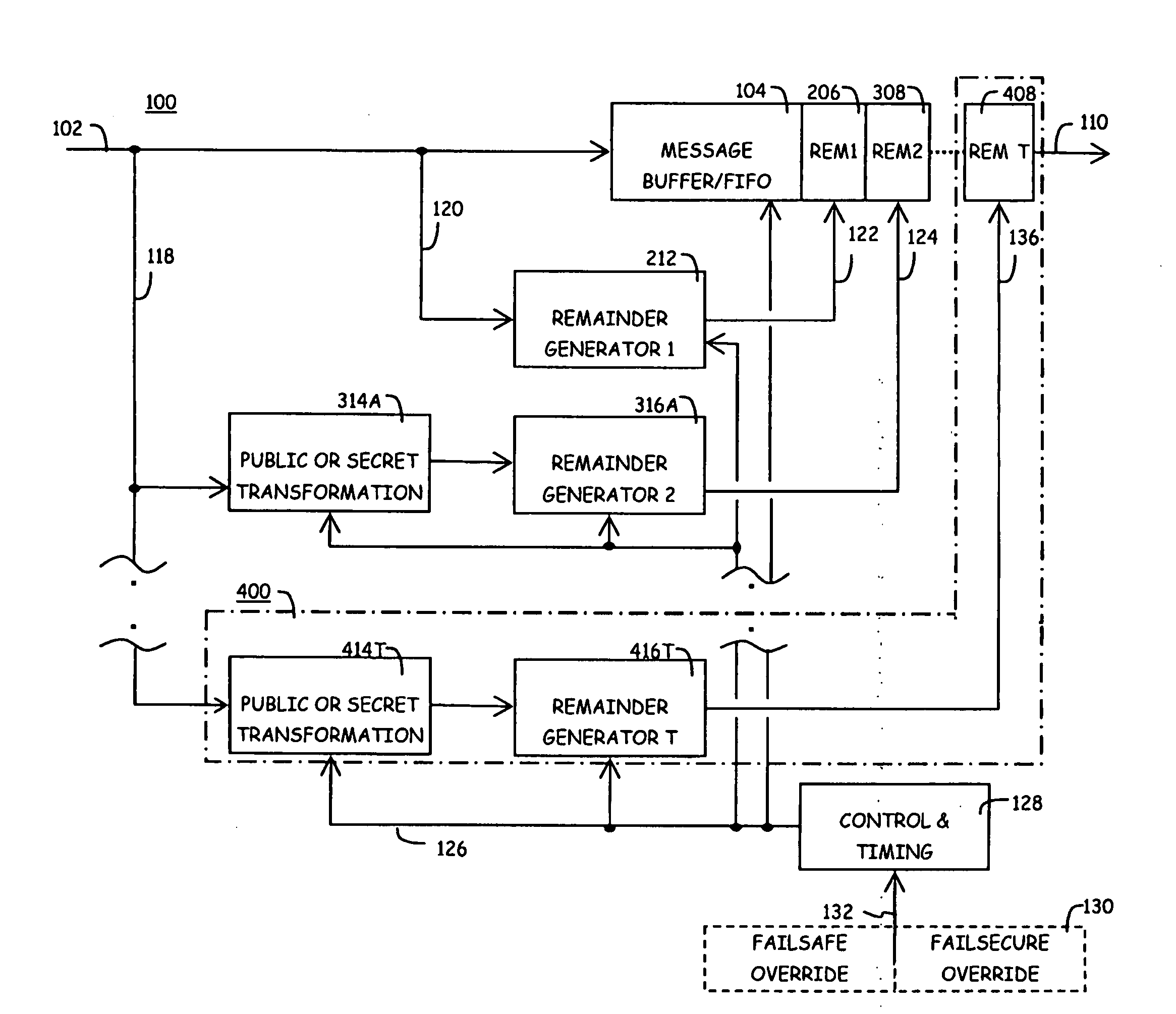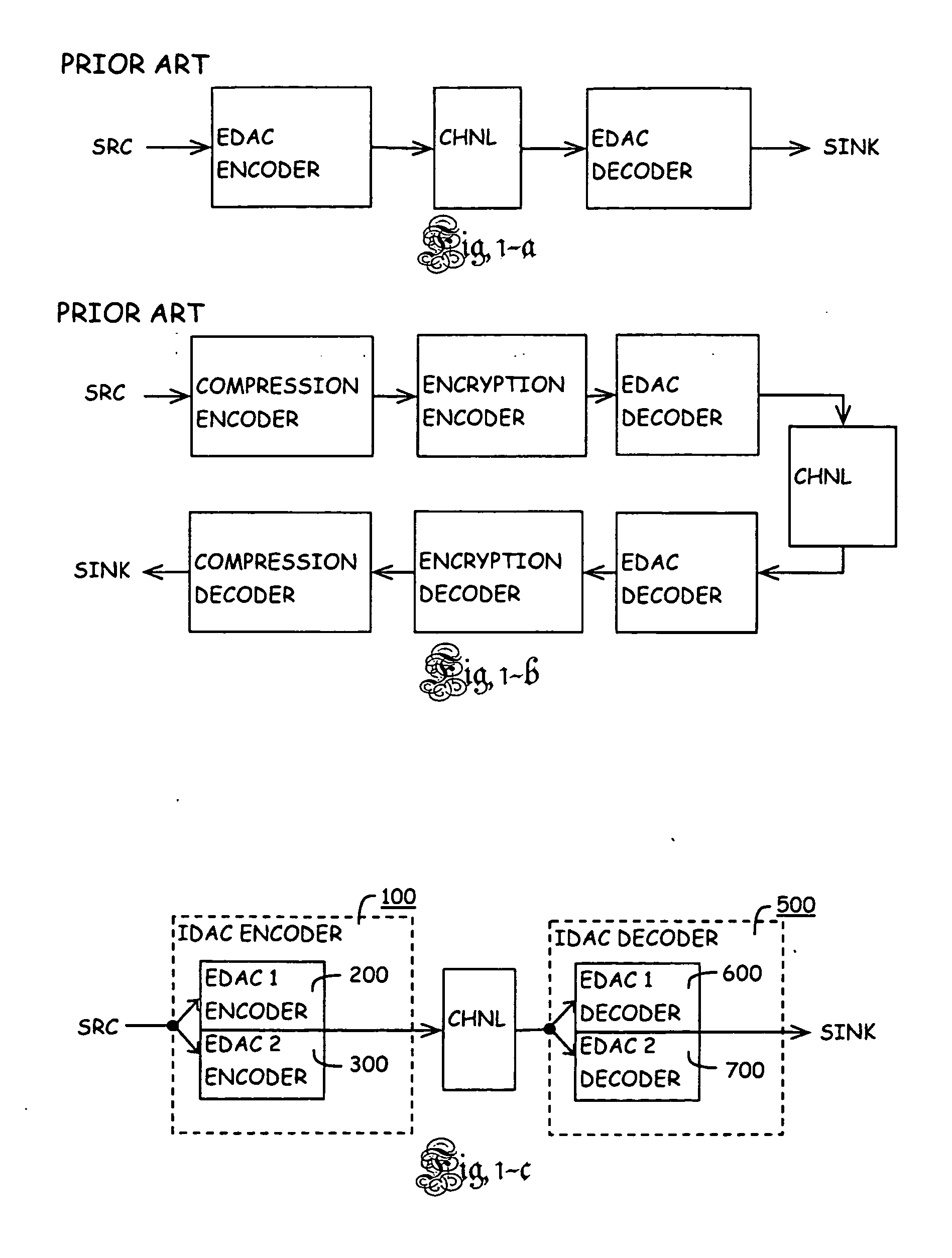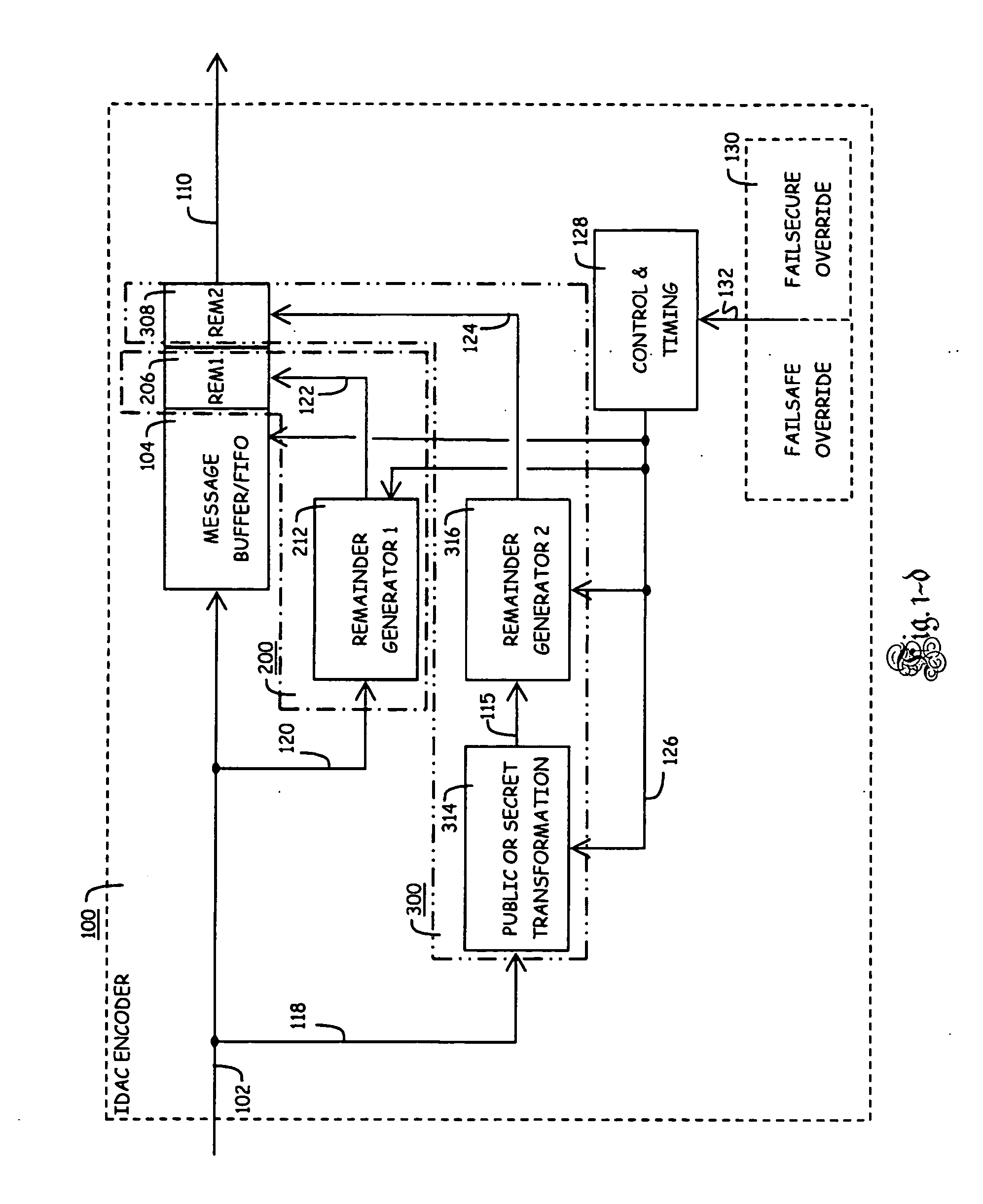Method of Identifying and Protecting the Integrity of a Set of Source Data
a technology of source data and integrity, applied in the field of method of identifying and protecting the integrity of a set of source data, can solve the problems of fundamentally different, easy to be modified, and corrupted systems and data,
- Summary
- Abstract
- Description
- Claims
- Application Information
AI Technical Summary
Benefits of technology
Problems solved by technology
Method used
Image
Examples
example 1
[0070]For simplicity of explanation and calculation, take a 3-byte message to be sent (using a 16-bit CRC algorithm). That message is spoofed, such that, it has the same residue as the original, such as:
TYPEMESSAGERESIDUE (CRC)Original0x2A301C0xDAC2Spoofed becomes0xC064540xDAC2 (matches)
Then toggle 1st bit at received end (this is the distortion step, but applied without an affine transformation). (Mathematically this means do the following:
[0071]0x2A301C⊕0x800000=0xAA301C.)
rec'd orig then is0xAA301C0xD62Erec'd spoof becomes0x4064540xD62E (matches again -spoof not detected)
How about making the distance between toggles >16 bits? Toggle 1st and last bits (23 bits apart) (limited to a distortion-only step, again):
[0072](Mathematically: 0x2A301C⊕0x800001=0xAA301D.)
rec'd orig then is0xAA301D0xC7A7rec'd spoof becomes0x4064550xC7A7 (still not detected)
[0073]Next let's precede the distortion with an affine transformation, in this case, switching every two bits.
example 2
[0074]
TYPEMESSAGERESIDUE (CRC)Original0x2A301C0xDAC2Spoofed becomes0xC064540xDAC2 (matches)
Then rotate every two bits at the received end (a trivial selection of an affine transformation):
rec'd orig then is0x15302C0x2728rec'd spoof becomes0xC098A80x3289 (no match - spoofdetectable)
The next case is to rotate every two bits and toggle first bit at the received end:
rec'd orig then is0x95302C0x2BC4rec'd spoof becomes0x4098A80x3E65 (no match - differentdetection)
A non-trivial selection of an affine transformation requires a rigorous analysis of the system against known relationships for known polynomials, when probability calculations are needed.
[0075]So what happened in example 1? It might be explained by talking about distance, but distance has a different meaning in different contexts. On the number line, the distance between two points, say 7 and 4, is just the absolute value of their difference, (|7−4|=3). In Euclidean 2-space, the distance between two points, a=(x0, y0), and c=(x1,...
PUM
 Login to View More
Login to View More Abstract
Description
Claims
Application Information
 Login to View More
Login to View More - R&D
- Intellectual Property
- Life Sciences
- Materials
- Tech Scout
- Unparalleled Data Quality
- Higher Quality Content
- 60% Fewer Hallucinations
Browse by: Latest US Patents, China's latest patents, Technical Efficacy Thesaurus, Application Domain, Technology Topic, Popular Technical Reports.
© 2025 PatSnap. All rights reserved.Legal|Privacy policy|Modern Slavery Act Transparency Statement|Sitemap|About US| Contact US: help@patsnap.com



